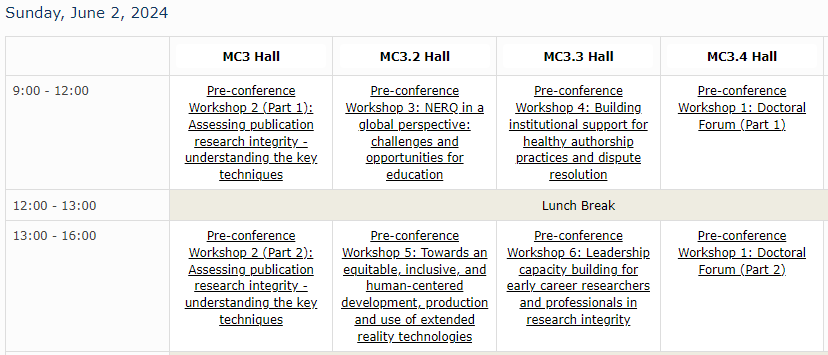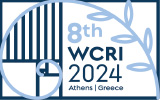
Pre-conference Workshops

| Half day workshop options: | |
| Workshop 3 | EUR 55,00 |
| Workshop 4 | EUR 55,00 |
| Workshop 5 | EUR 55,00 |
| Workshop 6 | EUR 55,00 |
| Workshop 3 & 5 | EUR 100,00 |
| Workshop 3 & 6 | EUR 100,00 |
| Workshop 4 & 5 | EUR 100,00 |
| Workshop 4 & 6 | EUR 100,00 |
| Full day workshop options: | |
| Workshop 1 | EUR 100,00 |
| Workshop 2 | EUR 100,00 |
Workshop 1: Doctoral Forum
One of the cherished traditions of the WCRIs is the Doctoral Forum. It provides a unique opportunity for PhD students doing research on research integrity topics to interact and to get advice and comments from an international panel of experts in the field with a strong methodological background. The Doctoral Forum provides an exciting, friendly and supportive environment for selected PhD students to share ideas and to interact with each other and with established research integrity scholars.
Students interested in participating in the Doctoral Forum must indicate this on their 8th WCRI registration form. They will subsequently receive instructions for their application that needs to be submitted by 10 May 2024 latest. The application will be reviewed for suitability for the Doctoral Forum by the expert panel.
Based on the quality and relevancy of the research project, the presentation of it by the PhD student, and the contribution made to the Doctoral Forum, the expert panel will decide on two Awards for Excellence in Doctoral Research.
Moderators and contributors
Lex Bouter
Professor Emeritus of Methodology and Integrity
Vrije Universiteit, Amsterdam, The Netherlands
Tamarinde Haven
Assistant Professor
Tilburg University, The Netherlands
Ana Marusic
Professor of Research in Biomedicine and Health
University of Split School of Medicine, Croatia
Gowri Gopalakrishna
Assistant Professor
Maastricht University, The Netherlands
Workshop 2: Assessing publication research integrity - understanding the key techniques
We have two interactive half-day workshops, demonstrating key methods for the assessment of publication research integrity across many disciplines and types of research, including paper mill products.
The morning provides basic key techniques, their practicalities and drawbacks, and resources available. The afternoon demonstrates their use, more advanced techniques, and some real cases. Delegates can attend either session. However, some of the simplest techniques provide the most compelling evidence for integrity concerns, so preferable for afternoon delegates to attend the morning session.
Alison Avenell, with contributions to materials from Andrew Grey and Mark Bolland, will cover the REAPPRAISED checklist (https://www.nature.com/articles/d41586-019-03959-6) and basic statistical techniques widely applicable to publications in the health sciences, RIA, TRACT and other checklists.
Jennifer Byrne will cover fact-checking methods to assess claims in preclinical research publications, including the Seek & Blastn tool that checks DNA/ RNA reagents in molecular biology papers.
http://scigendetection.imag.fr/TPD52/Vb/
Jana Christopher and Elisabeth Bik will cover detection and severity grading of image integrity issues, using the naked eye, image editing software, and automated screening tools.
Jana Christopher will cover image forensics using Photoshop, and examining raw data, mainly pre-publication, https://image-integrity.com
Elisabeth Bik will demonstrate automated image duplication detection tools in published material https://scienceintegritydigest.com/
Moderators and contributors
Workshop presenters
Alison Avenell (University of Aberdeen, Scotland)
Jennifer Byrne (University of Sydney, Australia)
Jana Christopher (Image Data Integrity Analyst, FEBS Press, Heidelberg University Biochemistry Center, Germany)
Elisabeth Bik, Science Consultant, Harbers Bik LLC
Additional contributors to workshop materials
Andrew Grey (University of Auckland, New Zealand)
Mark Bolland (University of Auckland, New Zealand)
Timing:
Morning session – understanding basic techniques (180 mins)
| Intro | 5 | |
| Jennifer Byrne | 30 | Introduce paper mills, checking sequences with Seek & Blastn. Principles of fact-checking and data triangulation, including broader considerations of research plausibility in the pre-clinical setting. |
| Alison Avenell | 60 | Introduce the ‘REAPPRAISED’ checklist for evaluation of publication integrity and basic statistical techniques, RIA and TRACT and other checklists. |
| Tea break | 15 | |
| Jana Christopher and Elisabeth Bik | 60 | Introduce image screening as part of decision-making pre- and post-publication, common problems that would render a manuscript/paper questionable. Paper mills – typical image-related problems, incl image re-use across papers and computer/ AI generated image |
| Discussion | 10 |
Afternoon session – further techniques, and practical demonstrations (180 mins)
| Intro | 5 | |
| Alison Avenell |
70 | Demonstrate and try out ‘REAPPRAISED’ checklist for evaluation of publication integrity; together with basic statistical techniques. |
| Tea Break | 15 | |
| Jana Christopher and Elisabeth Bik | 70 | Grading system for image manipulation, handling of issues found. Screening techniques: naked eye, Photoshop, automated tools (ImageTwin, Proofig, Forensically, Fig Check), advantages and drawbacks. |
| Final discussion | 20 |
Workshop 3: NERQ in a global perspective: challenges and opportunities for education
NERQ is an initiative that brings together researchers, educators and trainers in research integrity, open science, responsible conduct of research and reproducibility networks. The network aims:
1. To stimulate the exchange of good practices in education.
2. To improve the quality of training and trainers.
3. To stimulate research on education in research quality.
So far, online meetings and a position paper on RCR education (https://osf.io/5w9kg/) are milestones of the network. Originating from the context of European projects, NERQ currently has attracted scholars from Europe. Yet as scholars in RCR are active worldwide, in this pre-conference workshop we broaden the scope to a global perspective and stimulate debate on education in research quality. Using a World Café method with statements on RCR education, we will organise an interactive session with participants, followed by a showcase and demo of good practices and developments in the field, like story-telling methods, or courageous conversations.
Program:
20”: Introduction
80”: 3 rounds (World café tables) using statements on RCR education in a global perspective (led by NERQ members/coordinators)
Break
60”: Showcases, good practices and demos from NERQ community
15”: Wrapping up: how to broaden the scope
Moderators and contributor(s)
NERQ Co-Chairs
- Michiel de Boer, Dr., Associate Professor of Epidemiology at the University Medical Center Groningen, The Netherlands
- Seán Lacey, Dr., a founding member of the Cross Institutional Research Integrity Training and designated Research Integrity & Compliance Officer at MTU, Ireland.
- Silke Kniffert, MSc, Researcher at QUEST, Charite Berlin – FoRR, Berlin, Germany
- Miriam van Loon, Dr. APH – Methodology APH – Quality of Care Research Associate, Ethics, Law & Medical Humanities, Amsterdam UMC, The Netherlands
- Håkan Salwén, Associate Professor, Practical Philosophy, Stockholm University, Sweden
- Cyril Holm, Associate Professor Jurisprudence, Karlstad University, Sweden
- Marie Alavi, Researcher at Zentrum für Konstruktive Erziehungswissenschaft, Kiel, Germany
Workshop 4: Building institutional support for healthy authorship practices and dispute resolution
The workshop offers participants a guide for building healthy authorship practices within their own institutional contexts. It is based on NSF-supported research at our large, publicly-funded US university.
Outline:
1. Greetings; outline of problematic authorship issues; overview of project. (30 min)
2. Small group discussions to meet and discuss challenges; report-out to larger group (15 min)
3. Authorship Policy: In small groups, participants consider a model authorship policy and discuss suitable options and potential obstacles. Subsequent full-group discussion will allow for mutual learning and strategizing. (35 minutes)
4. Authorship Agreements: Participants will engage in a role-playing exercise to determine authorship on a fictional article. Subsequent full-group discussion will consider which elements of agreements would work at a participant’s institution (30 minutes)
5. Authorship Course: Participants will be introduced to our online course; small groups will identify feasible elements for their institution. (30 minutes)
6. Dispute process: In a full-group discussion, participants will discuss a model dispute process; evaluate a case study; and identify mechanisms at their institutions to support an authorship dispute resolution process. (25 minutes)
7. Promotion: building coalitions, identifying champions, and other success techniques will be discussed and situated in participants’ own institutional contexts. (15 minutes)
Moderators and contributors
All confirmed moderators and contributors are from the University of North Carolina at Charlotte, where the work was conducted.
Lisa M. Rasmussen, PhD (Philosophy); Professor (Philosophy) and Editor-in-Chief, Accountability in Research
George Banks, PhD (Management); Professor and Chair (Management), and Editor-in-Chief, The Leadership Quarterly
Katherine Hall-Hertel, EdD (Higher Education); Associate Dean (The Graduate School)
Elise Demeter, PhD (Neuroscience); Director of Academic Research & Assessment (Office of Assessment and Accreditation)
Holly Holladay-Sandidge, Graduate Assistant; PhD student (Organizational Science)
Andrew McBride, Graduate Assistant l PhD student (Organizational Science)
Workshop 5: Towards an equitable, inclusive, and human-centered development, production and use of extended reality technologies
eXtended Reality (XR) technologies — encompassing Virtual Reality (VR), Augmented Reality (AR), Mixed Reality (MR), Diminished Reality (DR), Modulated Reality (ModR) — are moving towards ubiquity. The mobile phone, for example, is popular for AR applications. Despite the potential benefits XR technologies provide, their ubiquity comes with potential risks, safety, privacy, security, interoperability, and research integrity-related challenges that need to be tackled now. The XR4HUMAN project is set to develop universally accepted, validated, and living guidance instruments, including a code of conduct on XR (CoC4XR) for industry and a rating system for users. Considering the absence of such guidelines in XR research and development, this will be a novel contribution in the fields of research ethics and research integrity.
These tools, needs to be informed by ethics and integrity principles, the state of the art on the technologies, policy, and governance considerations, as well as end user considerations and inputs, to contribute towards public trust and inclusivity. In this three-hour workshop XR4HUMAN partners will describe the uses of XR, known safety, privacy, security, interoperability, and research-integrity-related challenges, followed by a structured consultation and involvement with the participants, whose inputs will be collated for integration with further work on the CoC4XR.
Moderators and contributors
Rosemarie DLC Bernabe, Professor of Medical Research Ethics, co-coordinator of XR4HUMAN
Rigmor C Baraas, Professor of Optometry and Visual Neuroscience, co-coordinator of XR4HUMAN
Workshop 6: Leadership capacity building for early career researchers and professionals in research integrity
This workshop aims to provide leadership tools to early career researchers and professionals (ERPs) in the research integrity field. ERPs are often tasked and expected to handle delicate issues on research integrity. Therefore, it is crucial for them to have the right leadership mindset and tools to solve problems.
This workshop is open to anyone with less than 10 years of experience contributing to or working in the field of research integrity. Participants from various backgrounds, such as academics, researchers, research managers, administrators, and those who work for publishing companies, funders, and government agencies, are welcome to attend this workshop.
This interactive workshop comprises of four parts:
1. Overview of the workshop goals and objectives. (15 minutes)
2. Reflect on our roles and purposes as leaders. (45 minutes)
3. Identify challenges ERPs face as leaders. (60 minutes)
4. Charting the way forward. (60 minutes)
By the end of this workshop, the participants will gain some meaningful and practical leadership tools such as “reframing problems as questions,” “convergent-divergent thinking,” “active listening,” and “collective ideation.”
These tools are helpful in complex and collaborative work environments, not just in the research integrity field but in all aspects of professional arenas.
Moderators and contributors
The organisers of this workshop are:
1) Dr. De Ming Chau, Universiti Putra Malaysia
2) Dr. Joeri Tijdink, VU University Medical Center
3) Ms. Paula Saner, University of Cape Town





